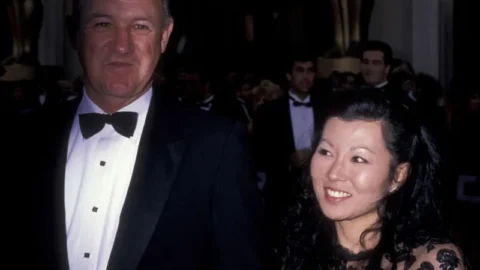Alec Baldwin will no longer face court proceedings for involuntary manslaughter following the tragic shooting on the set of Rust, as New Mexico prosecutors have officially dropped their appeal.
This marks the conclusion of a long and contentious legal battle stemming from the 2021 incident in which cinematographer Halyna Hutchins was killed and director Joel Souza injured. Baldwin, who was both an actor and co-producer on the film, has consistently denied pulling the trigger, maintaining that he was directed to aim the gun at a camera during filming.
The case initially came to an abrupt halt earlier this year after just three days of trial. The defense team argued that prosecutors had withheld critical evidence, forcing Judge Mary Marlowe Sommer to dismiss the case. Special prosecutor Kari Morrissey later filed an appeal, asserting that the dismissal had been improper.
However, the state’s district attorney’s office announced on Monday that, despite strong disagreements with the judge’s ruling, they would not continue to pursue the appeal. The decision effectively upholds the judge’s dismissal and closes the door on any further legal action against Baldwin in connection with the incident.
Prosecutors cited numerous barriers as a reason for discontinuing the appeal. “The State’s efforts to litigate this case in a fair and comprehensive manner have been met with multiple barriers,” local prosecutors stated.
The inability to fully prosecute the case, they said, had ultimately compromised their efforts to pursue justice to the fullest extent of the law. Baldwin’s legal team, led by Luke Nikas and Alex Spiro, hailed the decision as a vindication. “This was an unspeakable tragedy, but Alec Baldwin committed no crime,” they said in a statement, reaffirming their stance that the actor bore no criminal responsibility for the shooting.
The original trial unraveled when Baldwin’s defense team uncovered that live rounds, collected by the Santa Fe sheriff’s office as potential evidence, had not been disclosed to the defense.
These rounds, discovered on the same day the film’s armorer, Hannah Gutierrez, was convicted of involuntary manslaughter, were not listed in the case file. This omission led Baldwin’s lawyers to argue that the prosecution’s handling of the evidence was prejudicial, leaving no choice but to dismiss the case. Judge Sommer agreed, stating that the failure to disclose such critical evidence was a fundamental error that undermined the fairness of the trial.
The trial also featured moments of heated exchanges between Baldwin’s lawyer Alex Spiro and prosecutor Kari Morrissey. During questioning, Spiro accused Morrissey of harboring personal animosity toward Baldwin, suggesting she had referred to him with derogatory terms in conversations with witnesses.
Morrissey denied the claims, describing Baldwin as talented and politically aligned with her values. However, the defense argued that her alleged comments and the handling of evidence cast doubt on the integrity of the prosecution.
Ultimately, Judge Sommer ruled that the prosecution’s conduct, particularly regarding the undisclosed live rounds, was “highly prejudicial” and irreparably harmed Baldwin’s ability to receive a fair trial. In her dismissal, the judge noted that the court could not rectify the harm caused by the mishandling of evidence. This ruling now stands as the final word on the matter, barring any future attempts to refile charges against Baldwin.
The Rust case has drawn significant public attention, highlighting both the dangers of on-set firearm use and the complexities of legal accountability in the entertainment industry.
While Baldwin has been legally cleared, the tragedy remains a somber reminder of the importance of stringent safety protocols in filmmaking. For Baldwin, the dismissal closes a painful chapter, but the memory of the incident and its profound impact on those involved endures.








